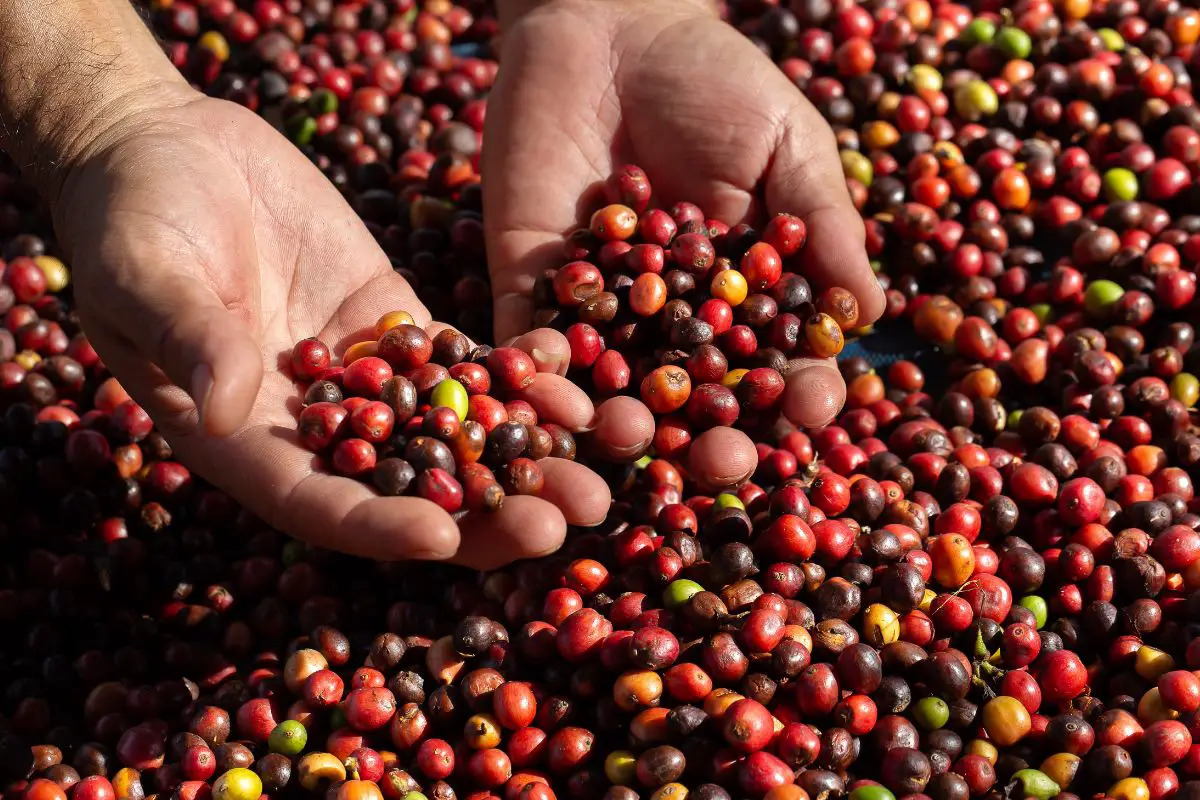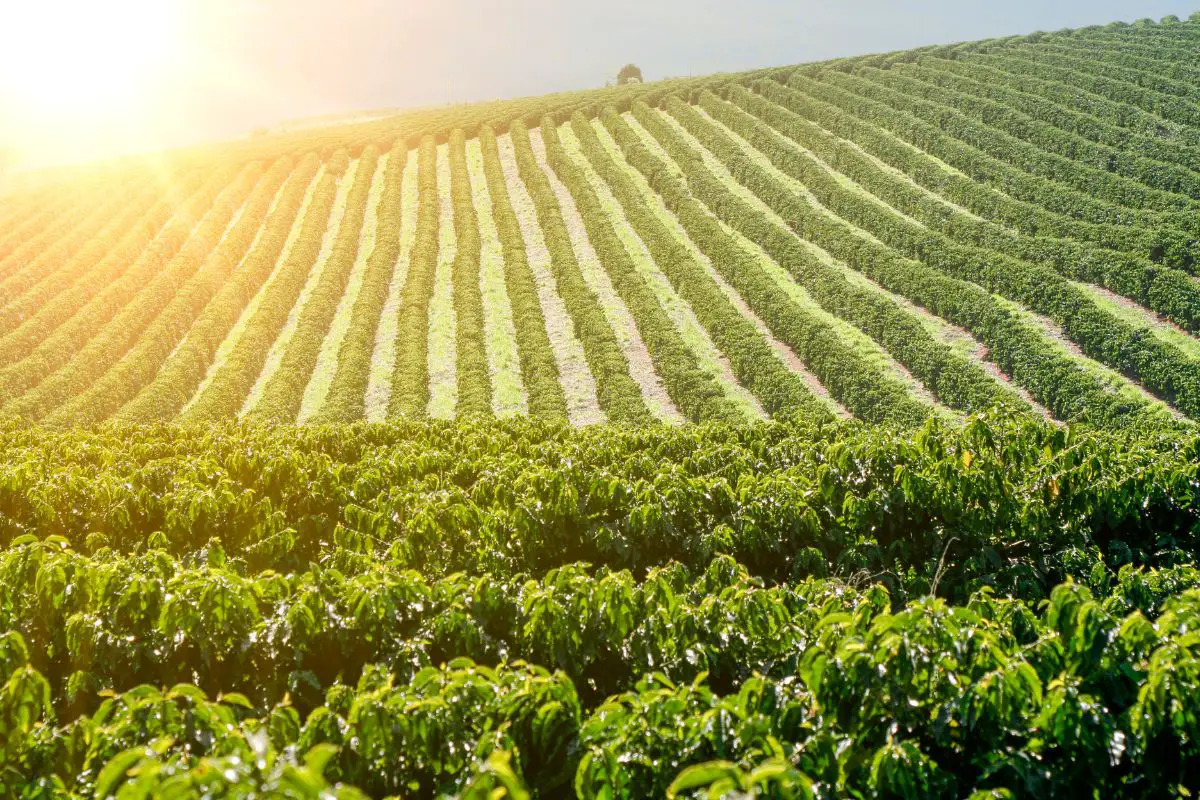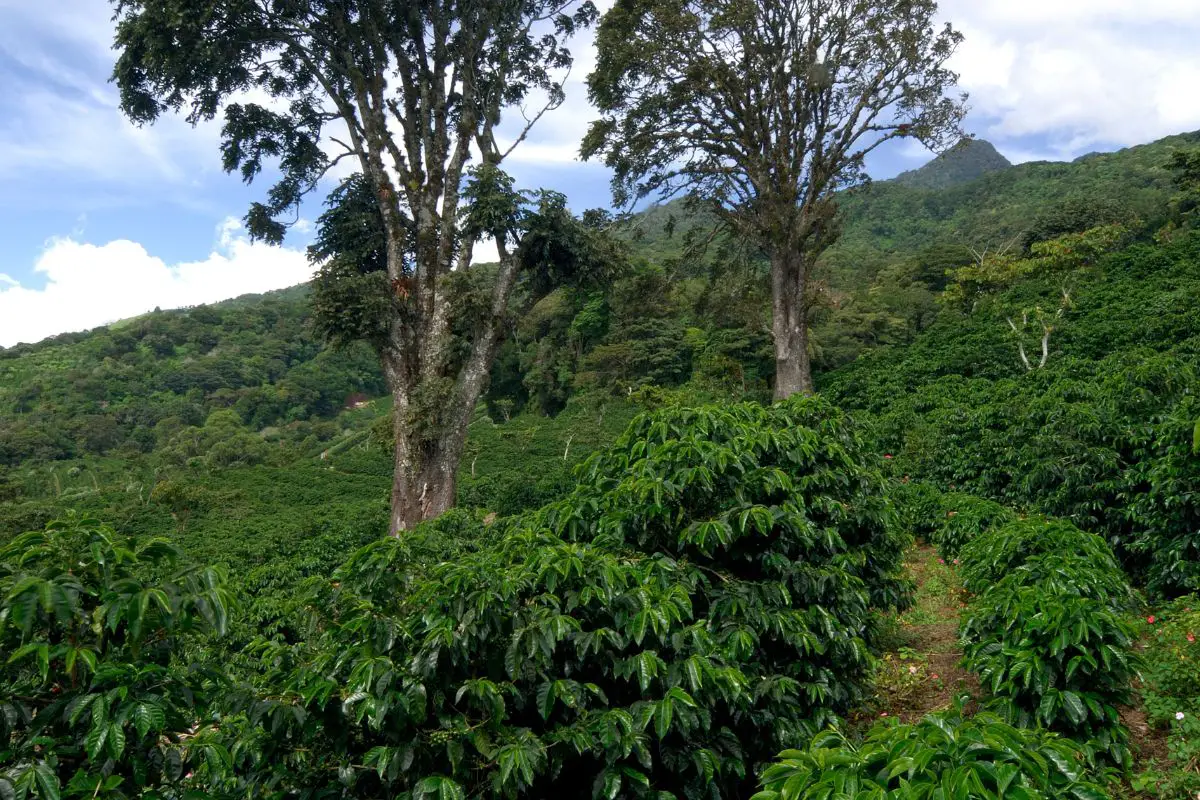Coffee lovers are a highly judgmental group. There is a lot they say about the origins, flavors, and aromas of different coffees. However, some differences between coffees are noticeable even before the brew reaches your cup. One of the most striking differences is between organic and regular coffee. So what’s the difference between organic coffee and regular coffee? Keep reading through this article to find out.

Organic Coffee vs Regular Coffee
Coffee is ranked among the top 10 most traded global commodities. At least 12 billion pounds of coffee are produced annually. At least 2 billion cups of coffee are consumed daily across the globe. Thus, meeting the huge demand for coffee is not an easy task.
Over the years, advanced coffee farming methods have been employed to maximize coffee production. Unfortunately, some of these advanced coffee production methods have had a negative impact on the environment and human health. The most common coffee production methods today are organic coffee and regular coffee. Let’s compare them in detail.
1. Regular Coffee

Regular (conventional) coffee, to start with, is one of the most chemically treated food items in the world. The production process of regular coffee involves extensive use of synthetic fertilizers, insecticides, fungicides, herbicides, and pesticides. These chemicals cause a lot of harm to the environment, consumers, and the general population.
Farmers who grow regular coffee are exposed to high levels of several chemicals while spraying. Also, they are exposed to the chemicals when harvesting the sprayed coffee. The surrounding communities are not left out. They are impacted negatively, especially through chemical residues in water and the air. Besides being unpleasant, many of these chemicals are highly toxic and pose serious health dangers to humans.
Another issue with regular coffee is that most of the regular coffee plants are hybrids. They are developed to grow in the open sun. Naturally, coffee prefers shade. However, growing coffee commercially in a thick forest makes it hard to tend to the coffee and harvest. Also, it is challenging to plant it densely.
In many cases, forests are cleared to create open fields for growing regular coffee. Although growing coffee in open fields increases production, it destroys the wild ecosystem including flora and fauna. Natural pest-deterrents such as lizards and birds are left without their natural habitat.
Consequently, insects that ruin coffee overpopulate. Thus, there is an increased need to use pesticides. Additionally, there is a need to use chemical fertilizers since natural fertilizers from leaf litter, natural decay, and bird droppings become a thing of the past.
Whenever it rains, there is increased surface runoff due to a lack of sufficient tree cover. The surface runoff washes away the soil and natural nutrients. Consequently, there is soil degradation and erosion that results in difficulty growing crops.
2. Organic Coffee

In comparison, organic coffee is grown without the use of any chemicals or fertilizers. Thus, there is cleaner air, water, and coffee. Only organic fertilizers are used such as compost, chicken manure, or coffee pulp. Organic coffee farms help fight climate change by reducing the emission of carbon gases. Besides, farmers and the surrounding communities are not exposed to toxic chemicals.
Organic coffee is mostly grown naturally, which is within the shade of forests. As a result, organic coffee production ensures wild animals and plants have a home. Also, it sustains soil fertility. Growing coffee organically in forested farms also allows for more resilience during unusual weather patterns.
Today, there is increased demand for organic coffee due to an increase in the number of coffee lovers who want to drink a beverage they feel comfortable in its production. By buying organic coffee, you are promoting sustainable coffee growing methods, healthy ecosystems, and superior coffee.
Final Thoughts
So what’s the difference between organic coffee and regular coffee? The difference is in their mode of production. Organic coffee is grown naturally whereas regular coffee is grown with the use of chemicals and hybrid plants. So why is organic coffee better? Organic coffee is better than regular coffee because it promotes healthy, ethical, and environmental benefits to humans, animals, and the planet.